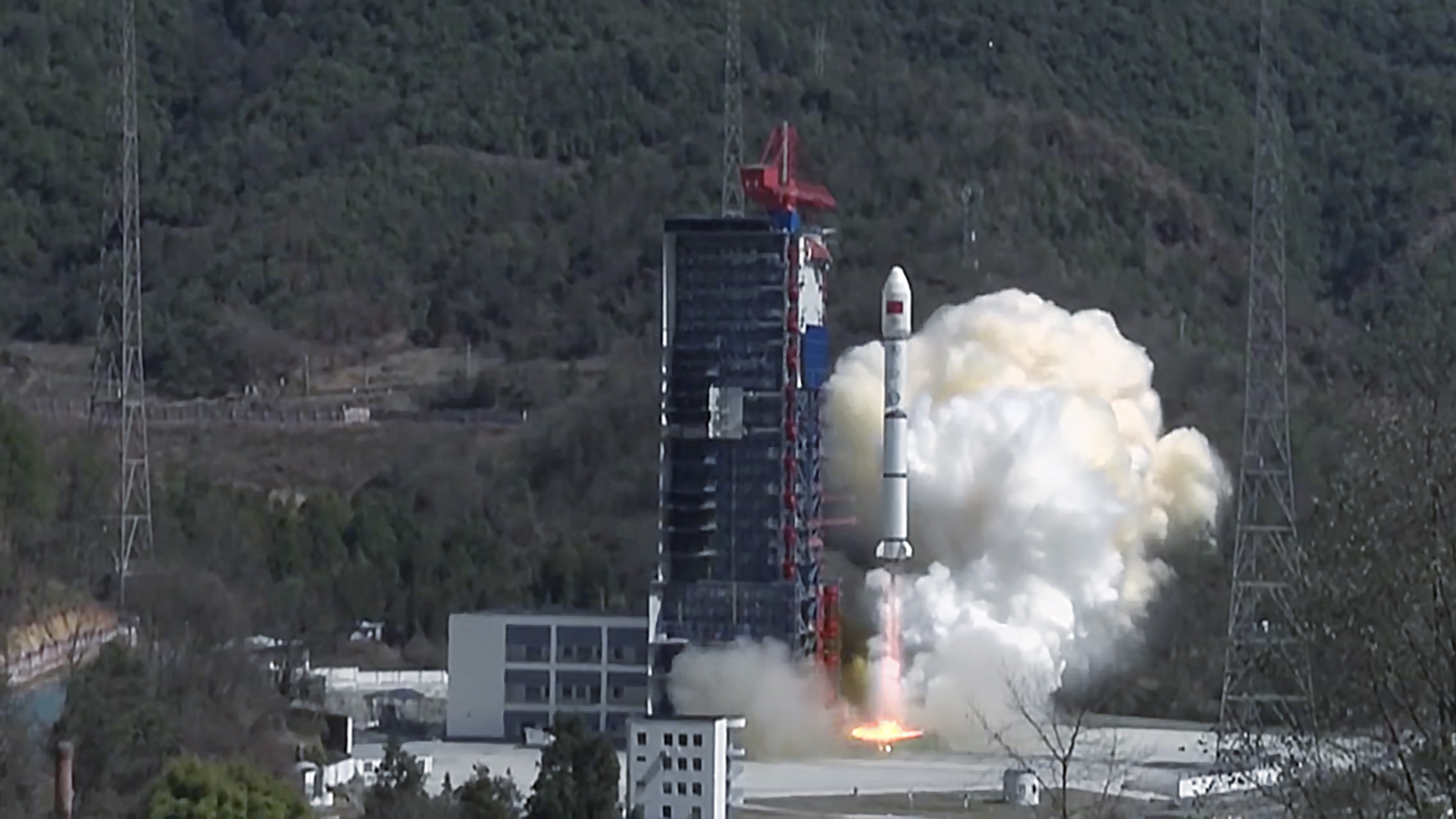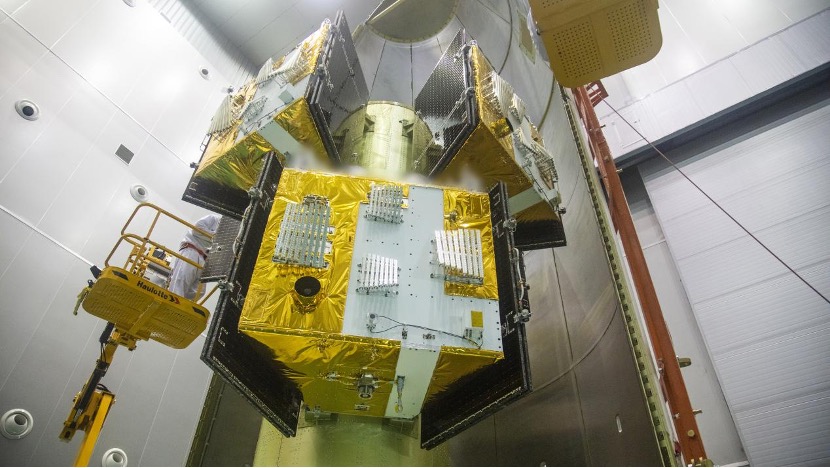00:47

China on Saturday successfully launched seven satellites from the Xichang Satellite Launch Center in southwest China's Sichuan Province.
One remote sensing satellite and six low-Earth-orbit (LEO) broadband communication satellites that will form the first pilot version of a satellite internet constellation were sent into orbit atop a Long March-2C carrier rocket at 2:01 p.m. local time.
The LEO broadband communication satellites, each weighing 190 kilograms, were mass-produced by China's private satellite developer GalaxySpace. These satellites will be part of a testing network of satellite internet, nicknamed "Mini-spider Constellation," the company said.
Together with the company's first satellite of its kind that was put into orbit two years ago, the seven satellites build a testing network to provide uninterrupted low-orbit satellite broadband communication services for more than 30 minutes at a time, becoming a major experimenting platform for China's satellite internet constructions.
"Today's launch proved that China has the capability to build satellite internet constellation at large scale, which includes the ability to mass-produce satellites at low cost as well as to operate in network," the company's co-founder Chang Ming told CGTN.

GalaxySpace's low-Earth-orbit broadband communication satellites. /GalaxySpace
GalaxySpace's low-Earth-orbit broadband communication satellites. /GalaxySpace
"This will promote the development of the technology for integrating remote sensing and low-orbit communication satellites for commercial use," he said.
Compared to the first satellite, the newly launched batch weights lighter and are loaded with more advanced tele-communication technologies and remote sensors. They were also produced with higher cost efficiency on a much simplified production streamline, the company said.
Read more
China's GalaxySpace delivers 6 broadband communication satellites

